
Office Hours:
Office Location:
Specialization:
- Philosophy of Language
- Philosophy of Logic
- Metaphysics
Education:
- PhD, University of California, Los Angeles
Bio:

Nathan Salmón

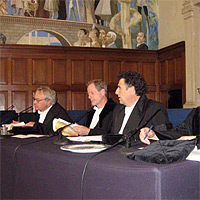


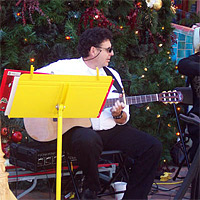
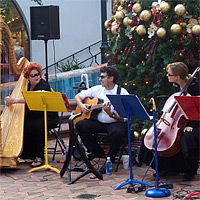
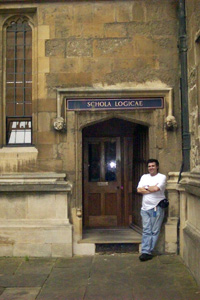
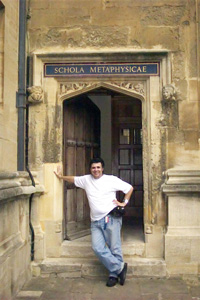

Nathan Salmon
Research:
My work pursues especially perplexing issues and problems in metaphysics through the investigation of language. My first book, Reference and Essence (Princeton University Press and Basil Blackwell, 1982), deals with a nest of issues in an area of overlap between the philosophy of language and metaphysics. My second book, Frege’s Puzzle (Ridgeview, 1986, 1991), belongs more squarely in the philosophy of language, and indeed, directly addresses what many regard as the central problem in the philosophy of language, but it has also led to a number of projects touching on topics in metaphysics, the philosophy of mind, the philosophy of psychology, epistemology, the philosophy of logic, and the philosophy of mathematics. Many of these issues are discussed in a collection I co-edited, Propositions and Attitudes (Oxford University Press, 1988). I am currently working on the problem of personal identity, as well as a host of problems and issues raised by names from fiction and other nonreferring terms.
Projects:
Forthcoming
1. Russell's Law: An Ode to a Logical Theorem
2. A Paradox about Sets of Properties
Works in Progress
- “Vagaries about Vagueness,” under submission.
- “On Indirect Sense and Designation,” under submission.
- “Professor Schiffer’s Illogical Belief,” to appear in G. Ostertag, ed., festschrift for Stephen Schiffer, in preparation [invited].
- “What is Existence?” to appear in H. Deutsch and A. Everett, eds (forthcoming 2007) [invited].
- “‘Must’ and ‘Might’,” chapter on modal logic for Logic: Techniques of Formal Reasoning (Third Edition), by D. Kalish, R. Montague, G. Mar, and N. Salmón. Oxford University Press, in progress [refereed].
Publications:
Books
1. Reference and Essence. Princeton University Press, 1981; Basil Blackwell, 1982.
2. Frege’s Puzzle. Bradford Books/MIT Press, 1986.
3. Frege’s Puzzle (Second Edition). Ridgeview, 1986, 1991.
4. Reference and Essence (Second Edition), with new appendices. Prometheus Books, 1981, 2005.
5. Metaphysics, Mathematics, and Meaning: Philosophical Papers I. Oxford University Press, 2006.
6. Content, Cognition, and Communication: Philosophical Papers II. Oxford University Press, 2007.
Articles
1. Critical Review of Leonard Linsky, Names and Descriptions, The Journal of Philosophy, Vol. 76, No. 8 (1979), pages 436–452 (invited).
2. “How Not to Derive Essentialism from the Theory of Reference,” The Journal of Philosophy, Vol. 76, No. 12 (1979), pages 703–725.
3. “Assertion and Incomplete Definite Descriptions,” Philosophical Studies, Vol. 42, No. l (1982), pages 37–45; reprinted in Content, Cognition, and Communication, Chapter 15.
4. “Fregean Theory and the Four Worlds Paradox: A Reply to David Over,” Philosophical Books, Vol. 25, No. 1 (1984), pages 7–11 [invited]; reprinted in Reference and Essence (Second Edition), Appendix.
5. “Impossible Worlds,” Analysis, Vol. 44, No. 3 (1984), pages 114–117; reprinted in Metaphysics, Mathematics, and Meaning, Chapter 5.
6. “Reflexivity,” Notre Dame Journal of Formal Logic, Vol. 27, No. 3 (1986), pages 401–429 [invited]; reprinted in Propositions and Attitudes (Oxford Readings in Philosophy, 1988), pages 240–274; also inContent, Cognition, and Communication, Chapter 2.
7. “Modal Paradox: Parts and Counterparts, Points and Counterpoints,” in Midwest Studies in Philosophy XI: Studies in Essentialism, edited by Peter French, Theodore Uehling, Jr., and Howard Wettstein. University of Minnesota Press, 1986,, pages 75–120 [invited]; reprinted in Reference and Essence (Second Edition), pages 75–120; reprinted in Reference and Essence (2nd Edition), pages 273–344.
8. “Existence,” in Philosophical Perspectives 1: Metaphyics, edited by James Tomberlin. Ridgeview, 1987, pages 49–108 [invited]; reprinted in Metaphysics, Mathematics, and Meaning, Chapter 1.
9. “The Fact that x = y,” Philosophia (Israel), Vol. 17, No. 4 (December 1987), pages 517–518 [invited]; reprinted in Metaphysics, Mathematics, and Meaning, Chapter 8.
10. ”‘An Empire of Thin Air,’ Critical Review of David Lewis, On the Plurality of Worlds,” The Philosophical Review, Vol. 97, No. 2 (1988), pages 237–244; reprinted in Metaphysics, Mathematics, and Meaning,Chapter 6 [invited].
11. “How to Measure the Standard Metre,” Proceedings of the Aristotelian Society New Series, Vol. 88 (1987⁄1988), pages 193–217 [invited]; reprinted in Matthew Davidson, ed., On Sense and Direct Reference(McGraw-Hill, 2007).
12. “The Logic of What Might Have Been,” The Philosophical Review, Vol. 98, No. 1 (1989), pages 3–34; reprinted in Metaphysics, Mathematics, and Meaning, Chapter 7.
13. “Reference and Information Content: Names and Descriptions,” in Handbook of Philosophical Logic IV: Topics in the Philosophy of Language, edited by Dov Gabbay and Franz Guenthner. Dordrecht: D. Reidel,1989, Chapter IV.5, pages 409–461; reprinted in Handbook of Philosophical Logic, Second Edition, Vol. 10, edited by Dov Gabbay and Franz Guenthner. (Kluwer, 1989, 2003), pages 39–85 [invited].
14. “How to Become a Millian Heir,” Noûs, Vol. 23, No. 2 (1989), pages 211–220 [invited].
15. “Tense and Singular Propositions,” in Themes from Kaplan, edited by Joseph Almog, John Perry, and Howard Wettstein. Oxford University Press, 1989, pages 331–392 [invited].
16. “Illogical Belief,” in Philosophical Perspectives, 3: Philosophy of Mind and Action Theory, edited by James Tomberlin. Ridgeview, 1989, pages 243–285 [invited]; reprinted in Content, Cognition, and Communication, Chapter 10; also in M. Davidson, ed., On Sense and Direct Reference (McGraw-Hill, 2007).
17. “A Millian Heir Rejects the Wages of Sinn,” in Propositional Attitudes: the Role of Content in Logic, Language, and Mind, edited by C. Anthony Anderson and Joseph Owens. Center for the Study of Language and Information, Stanford University, 1990, pages 215–247 [invited]; reprinted in Content, Cognition, and Communication, Chapter 1; also in M. Davidson, ed., On Sense and Direct Reference(McGraw-Hill, 2007).
18. “Temporality,” in Oxford International Encyclopedia of Linguistics, edited by William Bright. Oxford University Press, 1990, [invited].
19. “Singular Terms,” in Handbook of Metaphysics and Ontology, edited by Hans Burkhardt and Barry Smith. Philosophia Verlag, 1990, [invited].
20. “How Not to Become a Millian Heir,” Philosophical Studies, Vol. 62, No. 2 (1991), pages 165–177 [invited]; reprinted in Content, Cognition, and Communication, Chapter 7.
21. “The Pragmatic Fallacy,” Philosophical Studies, Vol. 63, No. 1 (1991), pages 83–97 [refereed]; reprinted in Content, Cognition, and Communication, Chapter 16.
22. “Reflections on Reflexivity,” Linguistics and Philosophy, Vol. 15, No. 1 (1992), pages 53–63 [refereed]; reprinted in Content, Cognition, and Communication, Chapter 3.
23. “On Content,” Mind, Vol. 101, No. 404 (1992), pages 733–751. Special issue commemorating the centennial of Gottlob Frege’s “Über Sinn und Bedeutung” [invited]; reprinted in Metaphysics, Mathematics, and Meaning, Chapter 14.
24. “Relative and Absolute Apriority,” Philosophical Studies, Vol. 69, (1993), pages 83–100; reprinted inContent, Cognition, and Communication, Chapter 8.
25. “This Side of Paradox,” Philosophical Topics, Vol. 21, No. 2 (1993), pages 187–197 [invited]; reprinted in Metaphysics, Mathematics, and Meaning, chapter 9.
26. “A Problem in the Frege-Church Theory of Sense and Denotation,” Noûs, Vol. 27, No. 2 (1993), pages 158–166; reprinted in Metaphysics, Mathematics, and Meaning, Chapter 16.
27. “Analyticity and Apriority,” in J. E. Tomberlin, ed., Philosophical Perspectives, 7: Language and Logic.Ridgeview, 1993, pages 125–133 [invited]; reprinted in Content, Cognition, and Communication,Chapter 9.
28. “Sense and Reference,” in Basic Topics in the Philosophy of Language, edited by Robert M. Harnish. Prentice-Hall and Harvester Wheatsheaf, 1994, pages 99–129 [invited].
29. “Frege’s Puzzle (excerpts),” in Basic Topics in the Philosophy of Language, edited by Robert M. Harnish. Prentice-Hall and Harvester Wheatsheaf, 1994, pages 447–489 [invited]; reprinted in Matthew Davidson, ed., On Sense and Direct Reference (McGraw-Hill, 2007).
30. “Being of Two Minds: Belief with Doubt,” Noûs, Vol. 29, No. 1 (1995), pages 1–20 [invited]; reprinted in Content, Cognition, and Communication, Chapter 12.
31. “Relational Belief,” in On Quine: New Essays, edited by Paolo Leonardi and Marco Santambrogio. Cambridge University Press, 1995, pages 206–228 [invited]; reprinted in Content, Cognition, and Communication, Chapter 13.
32. “Reference: Names, Descriptions, and Variables,” in Handbuch Sprachphilosophie: Volume 2, edited by Marcelo Dascal, Dietfried Gerhardus, Kuno Lorenz, and Georg Meggle. Walter De Gruyter and Company, 1996, pages 1123–1152 [invited].
33. “Trans-World Identification and Stipulation,” Philosophical Studies, Vol. 84, Nos. 2–3 (1996), pages 203–223; reprinted in Reference and Essence (Second Edition) as “Cross-World Identification and Stipulation,” Appendix, pages 345–368 [invited].
34. “Wholes, Parts, and Numbers,” in Philosophical Perspectives, 11: Mind, Causation, and World, edited by J. E. Tomberlin. Ridgeview, 1997, pages 1–15 [invited]; reprinted in Metaphysics, Mathematics, and Meaning, Chapter 12.
35. “Nonexistence” Noûs, Vol. 32, No. 3 (1998), pages 277–319 [invited]; reprinted in Metaphysics, Mathematics, and Meaning, Chapter 2; also in On Sense and Direct Reference, edited by M. Davidson. McGraw-Hill, 2007.
36. “Is De Re Belief Reducible to De Dicto?” in Meaning and Reference, edited by A. A. Kazmi. Canadian Journal of Philosophy Supplementary Volume 23, 1997; University of Calgary Press, 1998, pages 85–110 [invited]; reprinted in Content, Cognition, and Communication, Chapter 14.
37. “Kripke,” entry in the Cambridge Dictionary of Philosophy, Second Edition. Cambridge University Press,1995, 1999, page 476 [invited].
38. “The Limits of Human Mathematics,” in Philosophical Perspectives, 15: Metaphysics, edited by J. E. Tomberlin. Blackwell, 2001, pages 93–117 [invited]; reprinted in Metaphysics, Mathematics, and Meaning, chapter 13.
39. “Mythical Objects,” in Meaning and Truth, Proceedings of the Eastern Washington University and the University of Idaho Inland Northwest Philosophy Conference on Meaning, edited by J. Campbell, M. O’Rourke, and D. Shier. Seven Bridges Press, 2002, pages 105–123 [invited]; available at:http://www.class.uidaho.edu/morourke/research/Campbellwhole.pdf; reprinted in Metaphysics, Mathematics, and Meaning, Chapter 3.
40. “Puzzles about Intensionality,” in Blackwell Companion to Philosophical Logic, edited by Dale Jacquette. Oxford: Blackwell, 2002, pages 73–85 [invited].
41. “The Very Possibility of Language: A Sermon on the Consequences of Missing Church,” in Logic, Meaning and Computation: Essays in Memory of Alonzo Church, edited by C. A. Anderson and M. Zeleny. Boston: Kluwer, 2001, pages 573–595 [invited]; reprinted in Metaphysics, Mathematics, and Meaning,Chapter 17.
42. “Identity Facts,” Philosophical Topics, Vol. 30, No. 1 (2002), pages 237–267. Edited by C. Hill [invited]; reprinted in Metaphysics, Mathematics, and Meaning, Chapter 10.
43. “Demonstrating and Necessity,” The Philosophical Review, Vol. 111, No. 4, whole No. 560 (2002), pages 497–537 [refereed]; reprinted in Content, Cognition, and Communication, Chapter 4; also in On Sense and Direct Reference, edited by M. Davidson (McGraw-Hill, 2007).
44. “Naming, Necessity, and Beyond,” Mind, Vol. 112, No. 447 (2003), pages 475–492 [invited]; reprinted in Reference and Essence (Second Edition), pages 377–397.
45. “Tense and Intension,” in Time, Tense, and Reference, edited by A. Jokic. Cambridge University Press,2003, pages 107–154 [invited]; reprinted in Metaphysics, Mathematics, and Meaning, Chapter 18.
46. “Reference and Information Content: Names and Descriptions” (revised), in Handbook of Philosophical Logic, Second Edition, Vol. 10, edited by Dov Gabbay and Franz Guenthner. Kluwer, 1989, 2003, pages 39–85 [invited].
47. “Wei man ein Millianer wird” (German translation of “How to Become a Millian Heir”), in Neue Theorien der Referenz (New Theories of Reference), edited by Mark Textor. Mentis Publishing Company,2004, pages 38–47.
48. “Die Krux von Freges Rätsel” (German translation of an excerpt from Frege’s Puzzle), in Neue Theorien der Referenz (New Theories of Reference), edited by Mark Textor. Mentis Publishing Company, 2004, pages 60–71.
49. “The Good, the Bad, and the Ugly,” in Descriptions and Beyond, edited by A. Bezuidenhout and M. Reimer. Oxford University Press, 2004, pages 230–260 [invited]; reprinted in Content, Cognition, and Communication, Chapter 17.
50. “Two Conceptions of Semantics,” in Semantics versus Pragmatics, edited by Zoltán Gendler Szabó. Oxford University Press, 2005, pages 317–328 [invited]; reprinted in Content, Cognition, and Communication, Chapter 18.
51. “Are General Terms Rigid?” Linguistics and Philosophy, Vol. 28, No. 1 (2005), pages 117–134 [refereed]; reprinted in Content, Cognition, and Communication, Chapter 5.
52. “Proper Names and Descriptions,” in Encyclopedia of Philosophy (Second Edition), Donald M. Borchert. Macmillan, 2005 [invited].
53. “On Designating,” Mind, Vol. 114, No. 456 (centennial issue on Bertrand Russell’s “On Denoting,” edited by S. Neale), pages 1069–1133 [invited]; reprinted in Metaphysics, Mathematics, and Meaning,Chapter 15.
54. “A Father’s Message,” Preface to Metaphysics, Mathematics, and Meaning.
55. “Modal Logic Kalish-and-Montague Style,” in Metaphysics, Mathematics, and Meaning, chapter 4.
56. “Person Identity: What’s the Problem?” in Proceedings of the University of Haifa International Conference on the Work of Saul Kripke: Naming, Necessity, and More, edited by J. Berg (forthcoming) [invited]; preprinted in Metaphysics, Mathematics, and Meaning, Chapter 11.
57. “Pronouns as Variables,” Philosophy and Phenomenological Research (2006) [invited]; preprinted inMetaphysics, Mathematics, and Meaning, Chapter 19.
58. “Semantics vs. Pragmatics,” in What is Meaning? edited by Richard Schantz. de Gruyter, forthcoming [invited].
59. “The Resilience of Illogical Belief,” Noûs (2006) [invited]; reprinted in Content, Cognition, and Communication, Chapter 11; also as “Professor Schiffer on Illogical Belief” in G. Ostertag, ed., festschrift for Stephen Schiffer.
60. “Quantifying Into the Unquantifiable: The Life and Work of David Kaplan,” in The Philosophy of David Kaplan, edited by J. Almog and P. Leonardi. Oxford University Press, 2009; available online athttp://www.humnet.ucla.edu/humnet/phil/Lectures/DavidFest/DavidFest .htm [invited].
61. “Three Perspectives on Quantifying In,” Pacific Philosophical Quarterly (forthcoming) [invited]
62. “Points, Complexes, Complex Points, and a Yacht,” in N. Griffin and D. Jacquette, eds, The Proceedings of the McMaster University Conference on Russell vs. Meinong: 100 Years after “On Denoting” (2009) [invited].
63. “On Sense and Direct Reference,” forward to Matthew Davidson, ed., On Sense and Direct Reference(McGraw-Hill, 2007).
64. “Terms in Bondage,” Philosophical Issues (supplement to Noûs ) (2006) [invited].
65. “A Theory of Bondage,” The Philosophical Review (2006) [refereed].

